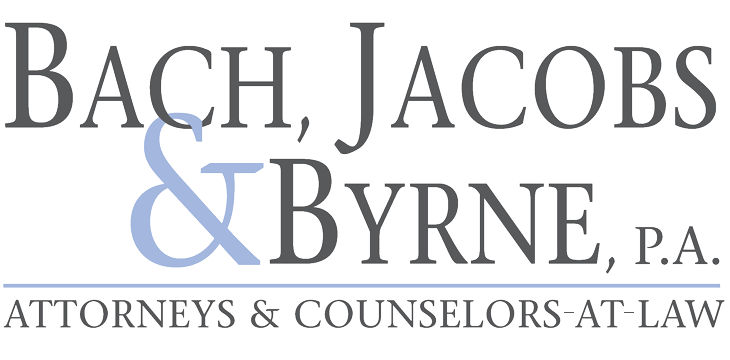Frequently Asked Questions about the Americans with Disabilities Act
The Americans with Disabilities Act (ADA of 2008 is a federal law that prohibits discrimination against individuals with disabilities.)
To whom does the Act apply?
Title 1 of the ADA covers employment by:
private employers with 15 or more employees, state and local government and Federal sector
In addition, most states have their own laws prohibiting employment discrimination on the basis of disability.
A two-step process is used to determine whether an individual with a disability is qualified:
To whom does the Act apply?
Title 1 of the ADA covers employment by:
private employers with 15 or more employees, state and local government and Federal sector
In addition, most states have their own laws prohibiting employment discrimination on the basis of disability.
A two-step process is used to determine whether an individual with a disability is qualified:
- Determine whether the individual satisfies the prerequisites for the position such as possessing the appropriate educational background, etc;
- Determine whether or not the individual can perform the essential functions of the position held or desired.
When is cancer a disability under the ADA?
Cancer is a disability under the ADA when it or its side effects substantially limit(s) one or more of a person’s life activities.The ADA includes 2 non-exhaustive lists of “major life activities.”
Walking, seeing, breathing, working, reading, bending and communicating
The second list includes major bodily functions (immune system, normal cell growth, digestive, bowel, bladder, neurological, brain, respiratory, circulatory, endocrine and reproductive functions)
Even when cancer itself does not substantially limit any major activity (such as when it is diagnosed and treated early), it can lead to the occurrence of impairments that may be disabilities.
Do employers have full access to medical information?
Title 1 of the ADA limits an employer’s ability to ask questions related to disability or conduct medical examinations at 3 stages: pre offer, post offer, and during employment.
Cancer is a disability under the ADA when it or its side effects substantially limit(s) one or more of a person’s life activities.The ADA includes 2 non-exhaustive lists of “major life activities.”
Walking, seeing, breathing, working, reading, bending and communicating
The second list includes major bodily functions (immune system, normal cell growth, digestive, bowel, bladder, neurological, brain, respiratory, circulatory, endocrine and reproductive functions)
Even when cancer itself does not substantially limit any major activity (such as when it is diagnosed and treated early), it can lead to the occurrence of impairments that may be disabilities.
Do employers have full access to medical information?
Title 1 of the ADA limits an employer’s ability to ask questions related to disability or conduct medical examinations at 3 stages: pre offer, post offer, and during employment.
- An employer may not ask whether the job applicant has or had cancer or about treatment related to cancer prior to making a job offer.
- An employer can ask an applicant questions pertaining to the performance of the job (whether he can lift weight, can travel out of town; whether he/she can work rotating shifts, etc.)
- A person with cancer is permitted to request an accommodation after becoming an employee, even if she did not ask for one when applying for the job or after receiving the job offer.
- With limited exceptions, an employer must keep confidential any medical information it learns about an applicant or employee.
- Telling co-workings that an employee is receiving a reasonable accommodation amounts to a disclosure of the employee’s disability.
What protection is there against discrimination?
Employers and their agents may not discriminate against a qualified individual with a disability because of such disability in any aspect of the employment relationship.
Focus is on the following: hiring, pay, benefits, segregation, advancement, discharge, training, testing and contractual arrangements.
What is reasonable accommodation?
Employer must reasonably accommodate a qualified individual with a disability unless to do so would cause an undue hardship. There is no precise definition of reasonable accommodation.
Examples include: making existing company facilities accessible; permission to work at home; modification of office temperature; permission to use work telephone to call doctors; reallocation or redistribution of marginal tasks to another employee; job restructuring; reassignment to a vacant position; medical leave; providing qualified readers or interpreters; acquisition or modification of equipment or devices.
BUT! An employer is not obligated to provide personal use items such as glasses or hearing aid.
What does undue hardship mean?
Undue hardship means an action requiring significant difficulty or expense in, or resulting from, the provision of the accommodation.Factors to be considered:
Employers and their agents may not discriminate against a qualified individual with a disability because of such disability in any aspect of the employment relationship.
Focus is on the following: hiring, pay, benefits, segregation, advancement, discharge, training, testing and contractual arrangements.
What is reasonable accommodation?
Employer must reasonably accommodate a qualified individual with a disability unless to do so would cause an undue hardship. There is no precise definition of reasonable accommodation.
Examples include: making existing company facilities accessible; permission to work at home; modification of office temperature; permission to use work telephone to call doctors; reallocation or redistribution of marginal tasks to another employee; job restructuring; reassignment to a vacant position; medical leave; providing qualified readers or interpreters; acquisition or modification of equipment or devices.
BUT! An employer is not obligated to provide personal use items such as glasses or hearing aid.
What does undue hardship mean?
Undue hardship means an action requiring significant difficulty or expense in, or resulting from, the provision of the accommodation.Factors to be considered:
- The overall financial resources of the employer;
- The number of persons employed by the employer;
- The nature and cost of the accommodation needed, etc.
How is this legally enforced?
Any person who believes that his/her employment rights have been violated on the basis of disability and wants to make a claim against an employer must file a charge of discrimination with the US Equal Employment Opportunity Commission (EEOC).
Any person who believes that his/her employment rights have been violated on the basis of disability and wants to make a claim against an employer must file a charge of discrimination with the US Equal Employment Opportunity Commission (EEOC).
Recommended Posts



